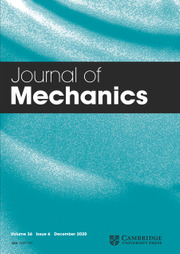Article contents
A Study of Transmission Error Modeling and Preload Compensation for the Cable-Driven Sheaves Used in Space Docking Locks
Published online by Cambridge University Press: 28 October 2020
Abstract
The transmission error of cable-driven sheaves (CDS) used in space docking locks directly affects the synchronous docking of two spacecraft, which is guaranteed mainly by the preload applied to their serial cables. But it is difficult controlled precisely because of the complicated cable deformation and operating conditions. The synchronous testing efficiency of the docking locks is inevitably influenced, correspondingly. This paper proposes a prediction model for the transmission error of CDS based on their cable deformation. In this model, the deformations of non- and free sectional cables are both modified on finite element analysis, which are respectively derived from classical Capstan equation and Hooke’s law for them without considering the effects of the friction coefficient between wire strands. Based on the proposed model, the relationships between the transmission error and dominating factors are analyzed. Then the preload compensation for transmission error is obtained at the engaging and locking angles of the docking locks, respectively. Experiments validate the model. This can provide a valuable reference in controlling the transmission error of CDS and improving the assembly efficiency of docking locks.
Information
- Type
- Technical Note
- Information
- Copyright
- Copyright © 2020 The Society of Theoretical and Applied Mechanics
References
REFERENCES
- 4
- Cited by

